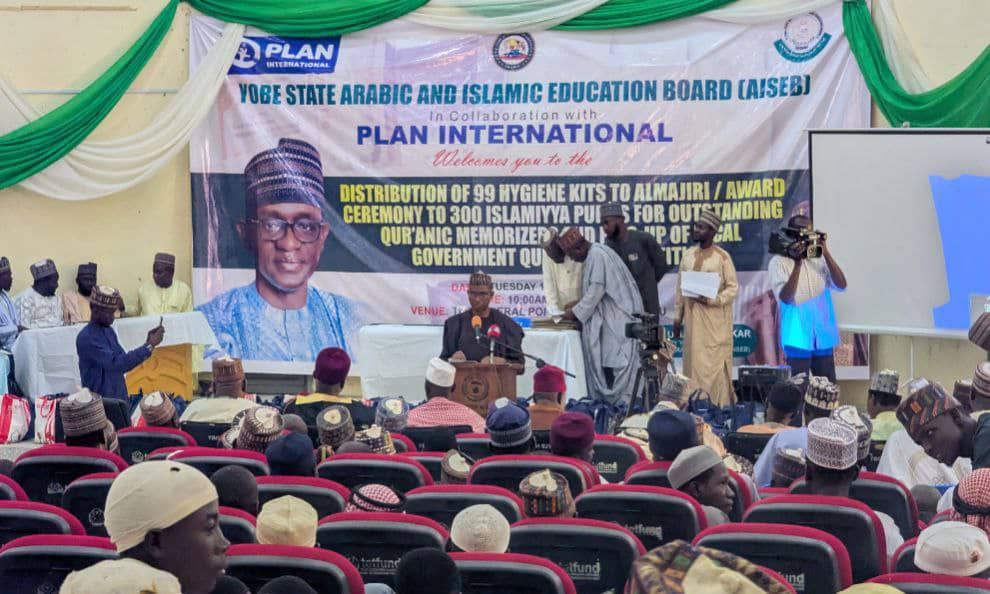From Sani Gazas Chinade, Damaturu
The Yobe State Arabic and Islamic Education Board, on Tuesday, flagged off the 2025 local government-level Qur’anic recitation competition and distributed hygiene kits to 99 Almajiri pupils across the state.
The event, which took place in Damaturu, the state capital, was held in honour of Nigeria’s former President, Muhammadu Buhari, who died on Sunday.
Executive Secretary of the Board, Dr Umar Abubakar, said the competition marked the official commencement of Qur’anic recitation activities at the grassroots level.
“The timing of this event coincides with the passing of our late President. We offered special prayers for the repose of his soul, asking Allah to forgive his shortcomings and grant him eternal rest,” Abubakar said.
According to him, the entire reward of the two-week-long competition would be dedicated to the memory of the late President in recognition of his contributions to the country.
Aside from the competition, 99 hygiene kits were shared among Almajiri children, while 300 Islamiyya pupils were honoured for their outstanding Qur’anic memorisation performance. The initiative was done in collaboration with Plan International.
In his goodwill message, Governor Mai Mala Buni emphasised the significance of Qur’anic education in shaping society’s moral and intellectual values.
“This initiative is part of our broader efforts to promote Qur’anic education in Yobe and Nigeria at large. Qur’anic learning plays a vital role in guiding our conduct and preserving our religious and cultural identity,” the governor stated.
Speaking at the event, Ms Halima Jibril, Project Officer at Plan International’s Yobe Field Office, explained that their support was aimed at improving hygiene standards among Almajiri children.
“Since 2019, Plan International has partnered with AISEB to establish community schools and provide educational resources. This year, we expanded our support to hygiene by distributing kits containing antiseptic soap, Vaseline, toothbrushes, toothpaste, and other essentials,” she said.
She noted that poor hygiene remained a major challenge among Almajiri children and that interventions like this were necessary to promote their health and dignity.
The event attracted religious leaders, education stakeholders, and civil society representatives, all of whom lauded the initiative and called for sustained investment in Qur’anic and Islamic education across the state.


